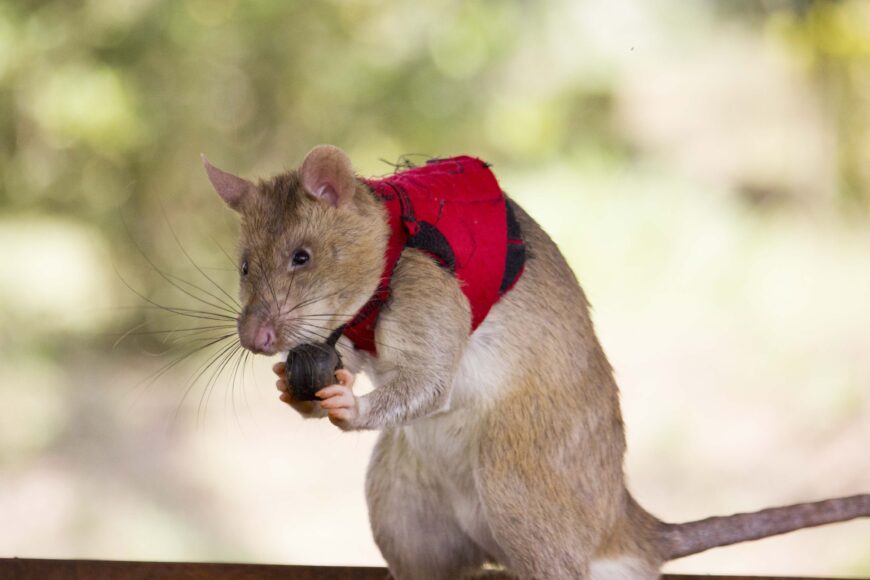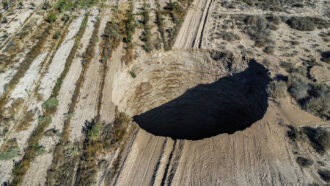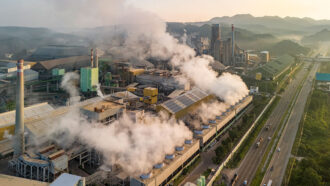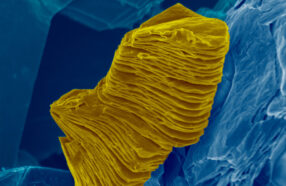
Animals
Giant rat border agents could help put a stop to wildlife poaching
African giant pouched rats have been trained to ferret out elephant ivory, pangolin scales and more. They could be put to work preventing smuggling.
Come explore with us!

African giant pouched rats have been trained to ferret out elephant ivory, pangolin scales and more. They could be put to work preventing smuggling.

Pollutants that build up in night air can break down the scents that attract pollinating hawkmoths to primrose blooms, disrupting their pollination.

When dipped in indican and exposed to sunlight, yarn turns a deep blue. This process is more eco-friendly than the current denim dyeing method.

Soil erosion washes pollutants into streams and rivers — but plants may help limit that.

A lot of these aquifers are quickly disappearing due to climate change and overuse. Fortunately, there is growth in some of the world’s major aquifers.

Urban garden specialist Kwesi Joseph is experimenting with rock dust and plants. He also helps New York City community and school gardens with gardening problems.

Energy demands of ChatGPT and similar AI tools can threaten Earth’s climate. So researchers have begun redesigning how to run data centers and build AI.

Scientists made a device that converts the greenhouse gas into formate. This salt can then run a fuel cell to make electricity.

After 50 years, this landmark law has kept many species alive — but few wild populations have recovered enough to come off the “endangered” list.

To slow global warming, we’ll need help from CO2-trapping materials. Enter MXenes. They’re strong and reactive — and they love to eat up CO2.